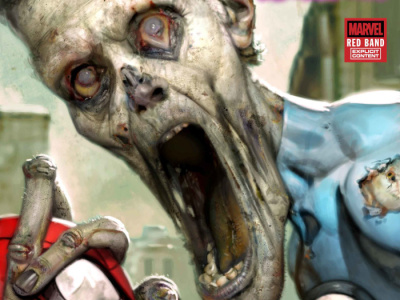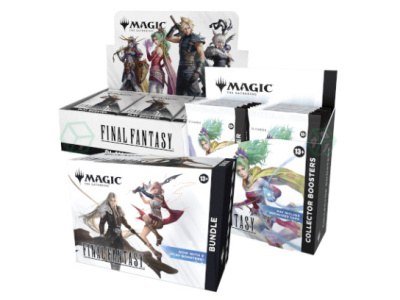 Earlier this week, DC Entertainment officially apologized for an ill-conceived contest to depict their character Harley Quinn naked in a bathtub, apparently contemplating suicide (see ICv2 story here). The apology appeared in a statement to the mega news site The Huffington Post after criticism of DC’s "Break into comics with Harley Quinn" art contest jumped from social media to fan-oriented media to the mainstream, perpetuating a cycle of negative news for the company that began with a controversy over the departure of Batwoman’s creative team after editors scotched the wedding of the lead character and her girlfriend.
Earlier this week, DC Entertainment officially apologized for an ill-conceived contest to depict their character Harley Quinn naked in a bathtub, apparently contemplating suicide (see ICv2 story here). The apology appeared in a statement to the mega news site The Huffington Post after criticism of DC’s "Break into comics with Harley Quinn" art contest jumped from social media to fan-oriented media to the mainstream, perpetuating a cycle of negative news for the company that began with a controversy over the departure of Batwoman’s creative team after editors scotched the wedding of the lead character and her girlfriend.Big news organizations sure are taking a lot of interest in the internal workings of comic book companies these days.
And that’s not all. The regrettable but reliable misogyny of videogame culture is also withering under the gaze of the outside world. Witness the huge dustup at PAXPrime earlier this month when organizer/cartoonist Mike Krahulik ripped the scab off a three year-old controversy over a tasteless rape joke, sending one of the industry’s showcase events down in (online) flames. Much ink was spilled over the dickwolves incident, but it was knowledgeable industry insider Rachel Edidin at Wired who delivered the killing rhetorical blow.
Welcome to another surreal moment of Peak Geek--the often uncomfortable colonization of pop culture by nerd culture (or is it vice versa?)--wherein formerly intramural disputes within the industry and fandom become everyone’s business. By and large, this is a good thing. Many of the pop culture industry’s vile habits, from gross misogyny to editorial pettiness to systematic abuse of creative talent, have festered under wraps for too long. Fans and fan media try to hold malefactors to account, but fandom’s critiques are often blunted by sentimentality ("yes, Marvel was a bastard to Jack Kirby, but we just love the X-Men!") or insider-y one-upsmanship that makes disputes seem too esoteric for outsiders to understand.
Now different dynamics are at work. Social media amplifies fan voices, making groundswells of resentment stories unto themselves, impossible to ignore. Fan media has become more professional at the high end, and mainstream media has brought in sophisticated pop culture-literate writers and analysts (many of whom are themselves hardcore fans or pros, like Edidin) to explain issues to non-nerd readers. Clear boundaries no longer separate noisy knee-jerk tweeters, bloggers, pop culture journalists, beat writers and mainstream media figures. It is more of a continuum, where the grass roots can pipe their concerns into the public consciousness more rapidly and directly than ever before.
The danger is that, even with a fresh infusion of smart nerds in strategic spots, mainstream media is still more liable than their niche counterparts to credit know-nothings on an equal basis with informed sources, misinterpret nuances, impose faulty narrative frameworks and just plain get stuff wrong when it comes to covering the business of pop culture--especially if they are taking their cues from some of the more excitable fever swamps of online fandom. The result is a much more treacherous environment for the big companies and big name creators unaccustomed to attention from these quarters.
The new transparency creates a learning curve. Comic pros are used to scrutiny from a combative but knowledgeable fanbase that can be mollified with a certain style of communication. DC’s first pass at an apology for the Harley Quinn incident came through the Facebook page of Harley Quinn writer and respected industry pro Jimmy Palmiotti. He defended the contest in creative terms using references that fans could relate to: "...a Mad magazine/Looney Tunes approach was what we were looking for. We thought it was obvious with the whale and chicken suit, and so on, but learned it was not."
Turns out that was not quite good enough for a mainstream media that caught the whiff of outrage generated by the combination of female nudity, suicide and a presumptively insensitive industry culture. DC ended up going with the fully spin-doctored "we apologize to anyone who may have been offended..." formulation beloved by politicians and corporations who can’t quite bring themselves to say "we apologize for doing something most people would consider stupid and offensive."
The Harley Quinn gag was in poor taste and it was not a great idea for DC to make a contest out of it, but you know what? DC isn’t perfect. In an effort to entertain, their editors and writers and artists do dumb stuff sometimes and they have to answer for it. Jimmy Palmiotti writes good, funny material most of the time. He should be allowed to have a bad day without ending up on the Suicide Prevention hit list. Otherwise the only effect is to make a notoriously risk-averse industry even more gun-shy.
The problem is that the scaling effect of big media scrutiny tends to diminish distinctions between errors in judgment and taste, which everyone makes, and systematic abuses that deserve every ounce of outrage that people can muster. A misfired joke is regrettable; deliberately disparaging women to rally meatheaded fans to your banner, mistreating creators as a matter of policy, or failing to honor commitments are all worthy of sustained shaming and attention.
Does big media institutionally have the capability or the desire to distinguish between these situations? As the Magic 8-Ball might say, "signs point to no." But at least in this case, we have the middle layer of expert professional geek media and smart geek culture insiders within mainstream outlets to help the big guns find the range.
-- Rob Salkowitz (@robsalk) is author of Comic-Con and the Business of Pop Culture and is working on a new project on the future of marketing and retail in the digital age.
The opinions expressed in this column are solely those of the writer, and do not necessarily reflect the views of the editorial staff of ICv2.com.







